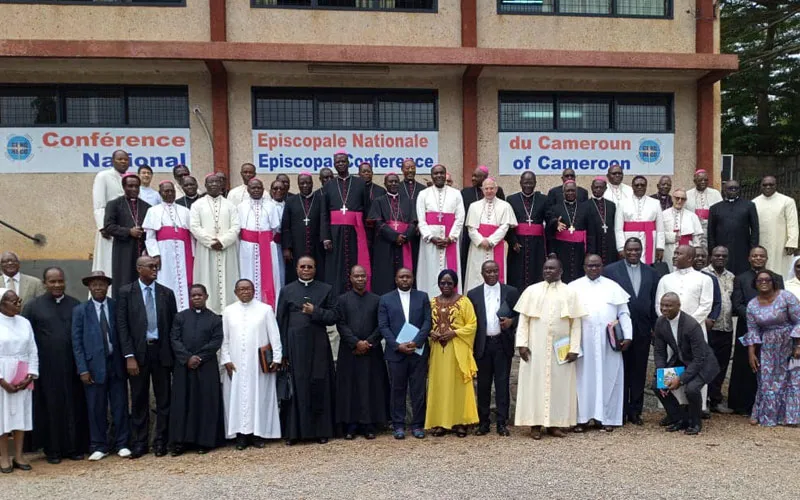“We recommend a thorough review of the documents on the teaching of the Church on the respect of newborn life, in order to better discern medical demands and services, to enlighten God's people and to act accordingly,” Catholic Bishops in Cameroon say in the their six-page declaration signed by NECC President, Archbishop Andrew Fuanya Nkea of Bamenda Archdiocese.
They express their concern about the issues that medically assisted reproduction “raises in the consciences of God's people” and add that despite the fact that the Church does not intervene in the realm of medical science, she “reminds all stakeholders of the ethical and social responsibility of their actions”.
“The Church points out that the ethics of biomedical science is measured by its relevance to the unconditional respect of every person at every moment of his or her existence and to the protection of the specificity of personal actions that transform life,” Catholic Bishops in Cameroon say.
They decry medically assisted reproduction techniques including “dissociation of the conjugal act from reproduction, embryo reduction through intentional targeted abortion” as illegalities that are against the teaching of the Church.
“All this manipulation makes procreation relentless, and thus deprives human reproduction of the dignity which is inherent and congenial to it,” NECC members say about medically assisted reproduction techniques.
They add, “If the use of these Medically Assisted Reproduction Techniques replaces the marital act as a means of conception, it is morally illicit and does not conform to God's intent for life.”
The Catholic Bishops make reference to Dignitas Personae 13 about promotion of fertility techniques that the Church considers legal, and say that “the techniques seek to make fertilization possible through the treatment of infertility.”
“These techniques constitute a boost to the conjugal act. They are techniques aimed at removing obstacles to natural fertilization, as for example, hormonal treatments for infertility, surgery for endometriosis, unblocking of fallopian tubes or their surgical repair,” they say.
In order to make this treatment conform to the truth of the Gospel, NECC members say, “medical techniques must respect the fundamental values on which the prophetic teaching of the Catholic Church on fertility techniques is based.”
There is need for the “promotion of the right to life and physical integrity of every human being from conception to natural death," they say.








